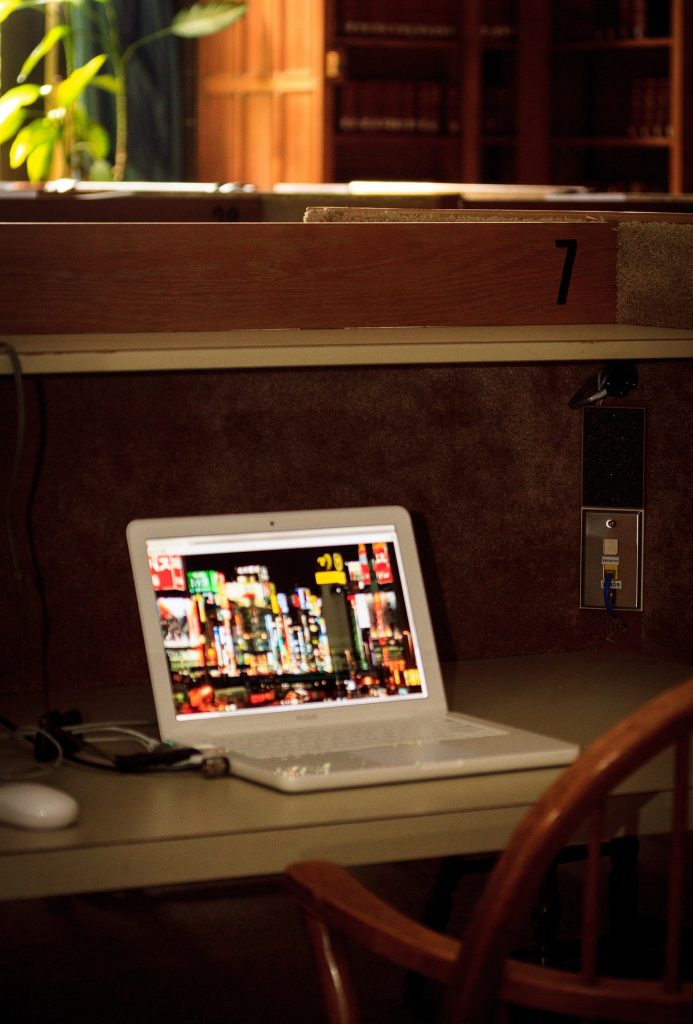by Allie Donahue
Schools across the world have shut their doors to help prevent the spread of COVID-19. But, while physical classrooms may be empty, virtual education spaces are bustling with activity. Here’s how to build a successful and sane online learning practice at home.
- Set boundaries between school and home.
When you’re learning from home, school and home-life can begin to blur.
“Unless you are careful to maintain boundaries, you may start to feel you’re always at work and lose a place to come home to,” warns Ned Hallowell, author of Driven to Distraction at Work. Avoid the amalgamation of school and home by setting up a separate space just for schoolwork. And no matter what, don’t work in your bed!

- Use time purposefully.
Is following a set schedule hard for you? Don’t worry! You’re not alone.
Instead, consider setting a routine. In a routine you follow an order of activities, but not a timetable. One mom, who’s been homeschooling for years, says switching from a schedule to a routine was the “key to a happy, productive homeschool life.”
Your computer is now your classroom, your desk, your locker, and likely a good many other things too. Keep it organized!
- Organize your digital life.
Organization master Marie Kondo offers some simple tips for digital tidying.
- Talk to yourself the way your teacher talks to you.
Teachers often ask students questions like, “What do you already know about X topic?” or “What did you learn about X topic today?” Oxford Learning recommends asking yourself these kinds of questions to promote active learning when you’re studying alone to track your progress and to stay focused.
- Take breaks.
“The brain is like any other muscle. It needs to rest,” says Stephen Kramer, a psychologist and author of The Progress Principle.
Try the Pomodoro technique, which punctuates 25-minute work sessions with five minute breaks.
- Stay connected to others.
In her guide to academic writing, Princeton Professor Wendy Laura Belcher insists, “Successful academic writers make writing social.”
Enlist the support of others to help you through your work. Maybe you tell your parents over breakfast what you’ll be working on that day and check in again over lunch. Or maybe you follow the lead of writer and scientist Olivia Judson and organize a co-working Zoom session with friends.
- Move your body.
Exercise makes you better at learning! Dr. Karen Postal, neuropsychologist and Harvard Medical School instructor explains, “Following a half hour of strenuous exercise, the dorsolateral prefrontal cortex works harder to resist distracters and performance on tests of attention improves.” After exercising, your brain works better.
Try an at-home workout or head outside for a safe, socially distant walk or run. (Keep tabs on local guidelines for outdoor activity as leaders may make changes to keep their communities safe.)
- Read on paper when you can.

In a review of 33 reading studies conducted between 2008 to 2018, education professor Virginia Clinton found ample evidence that readers comprehend more and read faster when reading on paper versus a screen.
Since online learning means a lot of time on the computer, read on paper when you can. Print out the article or consider ordering an assigned book from a local bookstore—they’ll be thankful for your business during these uncertain times!
- Examine your relationship to your screen.
“The key to surviving in our high-tech world,” writes author and computer scientist Cal Newport, “is to spend much less time using technology” in his book Digital Minimalism.
Internet learning puts technology to good use to help keep your academic skills sharp. But to make the most of your online school work, consider how to limit technology use in the rest of your life. How does your discretionary screen time, like social media and gaming, enhance your life? You should control your technology, not the other way around.
A few free tools to help: Flora, an app that rewards you and your friends for putting down your phones by planting real trees in Africa and Southeast Asia, Apple and Android screen time trackers for your phones, and SelfControl (Mac app) and StayFocused (Chrome extension) to help you avoid distracting websites on the computer.
- Be easy on yourself.
COVID-19 has created an unprecedented interruption in the flow of our daily lives. “Recognize that panic is normal and don’t try to keep pushing it away,” advises Dr. Goalie Saedi Bocci in Psychology Today. If you fall off schedule, eat too much ice cream, or keep making silly grammar mistakes—be kind to yourself. Tomorrow is a new day.
Need additional support or guidance? Our highly qualified tutors, like Allie, are here to guide you through at-home learning. Contact KEFTutoring today!
